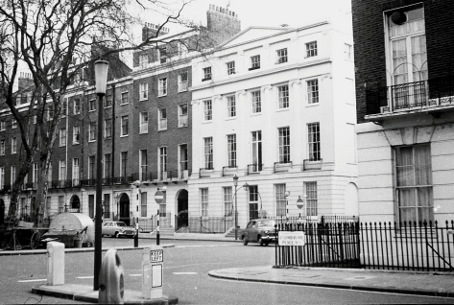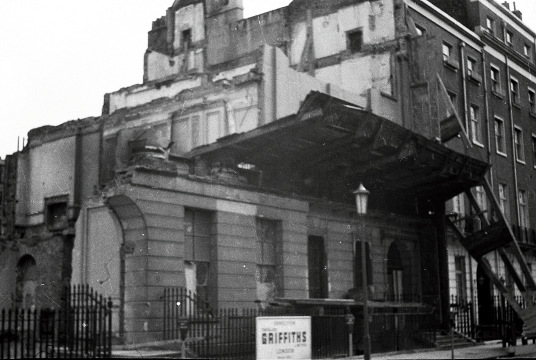

A global archive of independent reviews of everything happening from the beginning of the millennium
Read our Copyright Notice click here
For publication dates click here
Back to review of Harold Macmillan's The Past Masters
NEVER HAD IT SO GOOD?
Reviewed by ANDRE BEAUMONT
Was Macmillan's 'never had it so good' phrase true?
I remember the Douglas-Home years better, the late Macmillan years being just a little too early.
My first political utterance at school, where we had Quintin Hogg, the Minister of Education, as the local MP, on being asked whether we needed a new government when Sir Alec called an election, was to ask 'what's wrong with the present government?' which wasn't the discursive argument necessarily sought but I may have had a point without knowing it: the economy was having a boomlet and it was the last government to maintain full employment.
The late Macmillan years had good economic conditions, too.
I don't remember the Cuban Missile Crisis but do recall a few days or weeks later seeing a cartoon on the circular wall of an Underground station, probably from the Evening Standard or Daily Express, showing a series of ever larger American and Russian black bombs with different megatonages written on them. On asking my father what a megaton was and what the numbers meant he gave a surprisingly ungloomy but rational explanation of them referring back to the Crisis and the talk about the possible end of the world which I obviously must have known about then. On me asking what could be done with the material in the bombs other than cause explosions, he said you could burn it up in nuclear power stations to make electricity but not much else. I was probably a little surprised that Wedgie Benn didn't do just that when he was Minister of Technology.
I remember, too, going to a nursery where my best friend was a daughter of Yehudi Menuhin.
Taken as a group of about four years spanning the late Macmillan and Douglas-Home years, I probably remember quite a bit.
A salary of someone in the liberal professions was about four times the average so we could live well.
Selfridges was almost the local shop and we had one of the first supermarkets near us. From it we could have Swiss museli and yoghurt and plentiful rump steak and sirloin steak, my favorite cuts. Nearby was a fishmonger that sold a truly extensive range of fresh fish, always gave you free parsley with it, and had copious sawdust on the floor.
We ate à la francaise, my preferred meal for lunch being steak and chips, so if I did experience austerity fare it was before my recollection.
Perhaps there wasn't much else to spend money on but food, though we got one of the early washing machines and always had a fridge.
We were part of the jet set, in the sense that we used the early jets as soon as we could, and frequently, if not to go far. They were an alternative to taking the first class sleeper trains to the Riviera, which were also an adventure for children as you would wake to the red rocks of the littoral and sleep with a small blue veilleuse light on.
On arriving in Nice one summer by Air France Caravelle we read in the local paper that two or three days before another Caravelle had lost one of its two engines in the sea on its approach to Nice airport. (British aviation commentators always maintained it was an underpowered twin - not surprising as the Comet had four jets and the later Trident three).
The NHS didn't work. The local GPs did not live in London and refused to be in the city at weekends, providing no cover. They did not carry antibiotics in their visiting bags, which in those days were injected and so unavailable without the presence of a doctor. So there was little hesitation in calling out a private doctor at weekends if you had little children.
For those residents of our Georgian street, which was not terribly far from Harley Street, who might have needed advanced medical attention, they cottoned on to what they could do. They walked to the Street (there were few cars), looked for the brass plate that corresponded to their condition, went in and were treated for what was not a fortune, all parties profitably ignoring the existence of the NHS to mutual benefit.
Arguably, the NHS started to provide a universal service with adequate coverage around 1968, did well for about a decade, and has been dining off a good decade since.

Few cars
Perhaps it was real choice that was the thrilling part of society at that time. A little money went a long way but what you chose to spend it on could materially improve your life rather than position you relative to others. No one dreamed to stop you spending it on what you wanted.
I suspect Macmillan's 'never had it so good' was a little illusory.
These same streets in central London still had bomb sites that no one had the capital to put right quickly nearly two decades after the war.

Bomb site
Since soon after the Douglas-Home years the next 15 years became very difficult for us, and with the aura childhood gives to its selected golden years, the 'never had it so good' probably was true in our case.
Blythburgh, Aldeburgh, 1958, one of the first music festivals